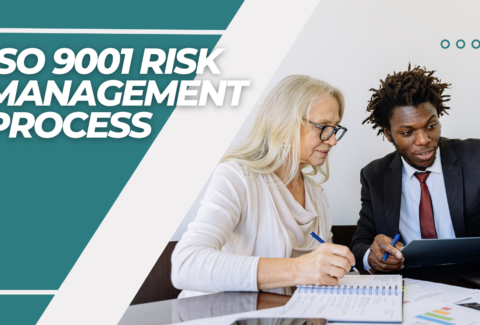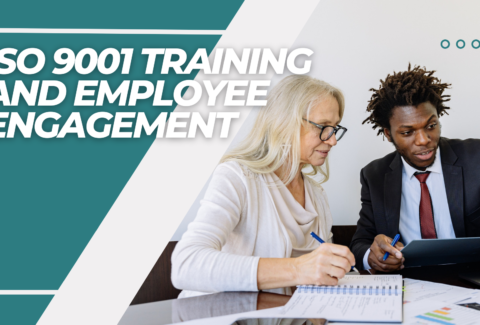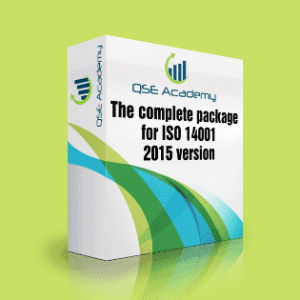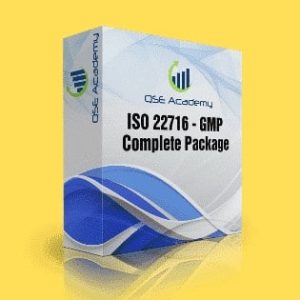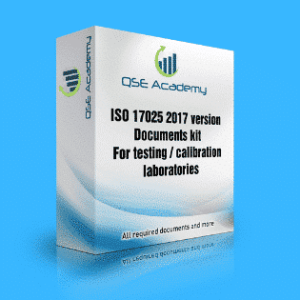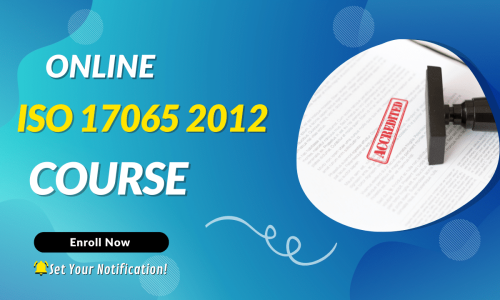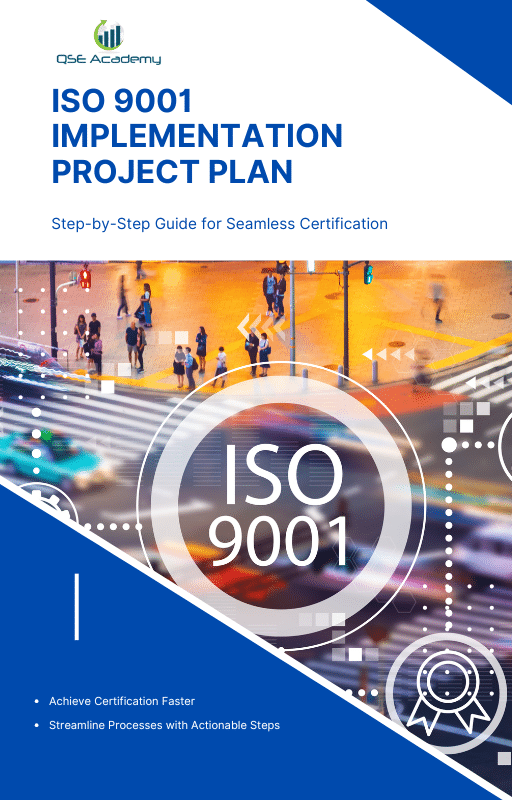Why Small Businesses Can’t Afford to Ignore ISO 9001
Why Small Businesses Can’t Afford to Ignore ISO 9001
If you’re a small business owner, you might be wondering: Is ISO 9001 really necessary for my company? Many people assume that ISO 9001 is only for large corporations with big budgets and complex operations. Because of this, small businesses often ignore ISO 9001, thinking it’s too expensive, too complicated, or simply not relevant to their operations. But here’s the reality—ignoring ISO 9001 is one of the biggest mistakes a small business can make.
Why? Because ISO 9001 isn’t just about certification—it’s about creating a business that runs more efficiently, delivers consistent quality, and builds long-term customer trust. It provides a structured approach to improving processes, reducing waste, and increasing profitability, no matter how small or large your company is. In fact, small businesses that implement ISO 9001 often find that it helps them scale faster, win bigger contracts, and stay ahead of competitors.
In this guide, we’ll break down exactly why small businesses can’t afford to ignore ISO 9001, what benefits it brings, and how you can implement it without feeling overwhelmed. By the end, you’ll see how ISO 9001 can be a game-changer for your business, helping you achieve higher efficiency, stronger customer relationships, and sustainable growth.
Let’s dive in!
Why Small Businesses Ignore ISO 9001 (and Why That’s a Big Mistake)
Many small business owners ignore ISO 9001 because they believe it’s unnecessary or too difficult to implement. But the truth is, avoiding ISO 9001 can lead to missed opportunities, operational inefficiencies, and even lost customers.
Let’s break down some of the most common myths that cause small businesses to ignore ISO 9001—and why these assumptions couldn’t be further from the truth.
Myth #1: “ISO 9001 is Only for Big Companies”
Some businesses think ISO 9001 is a corporate-level certification meant only for large organizations with complex supply chains and hundreds of employees.
✔ The Reality: ISO 9001 is designed to be flexible and scalable, meaning it works for businesses of all sizes—including startups, family-run companies, and local service providers.
✔ Small businesses benefit from the structure and efficiency that ISO 9001 brings, helping them streamline processes, reduce errors, and improve customer satisfaction.
✔ Many small businesses that ignore ISO 9001 struggle with inconsistent quality, employee miscommunication, and missed growth opportunities.
Myth #2: “ISO 9001 is Too Expensive”
Cost is a major concern for small businesses, and some believe that ISO 9001 certification requires a huge financial investment.
✔ The Reality: While certification does involve some costs, the long-term savings in efficiency, waste reduction, and customer retention far outweigh the initial investment.
✔ Small businesses that ignore ISO 9001 often face higher costs due to inefficiencies, product defects, and lost business opportunities.
✔ Many government contracts and larger corporations require ISO 9001 certification before they will even consider working with a supplier. Without it, your business may be losing out on lucrative deals.
✔ There are cost-effective ways to implement ISO 9001, such as starting with internal improvements before seeking full certification.
Myth #3: “We Don’t Have Time for ISO 9001”
Small business owners wear many hats—managing operations, sales, customer service, and more. It’s easy to see why some believe they don’t have time to focus on quality management.
✔ The Reality: Implementing ISO 9001 saves time in the long run by creating efficient workflows, reducing errors, and eliminating unnecessary rework.
✔ Businesses that ignore ISO 9001 often spend more time fixing mistakes, handling customer complaints, and firefighting daily operational issues.
✔ ISO 9001 doesn’t have to be overwhelming. Start small, focus on key areas first, and integrate improvements gradually.
Myth #4: “ISO 9001 is Too Complicated”
Some small business owners fear that ISO 9001 is a bureaucratic nightmare filled with endless paperwork and unnecessary rules.
✔ The Reality: ISO 9001 is about creating a structured approach to quality, not adding complexity.
✔ The standard is flexible and adaptable—you don’t have to apply every requirement in the same way as a multinational corporation.
✔ Small businesses that ignore ISO 9001 often end up with disorganized operations, unclear processes, and difficulty scaling their business.
✔ By keeping documentation simple and practical, ISO 9001 can actually make running a business easier, not harder.
The Bottom Line: Ignoring ISO 9001 is Riskier Than You Think
While some small businesses believe they can ignore ISO 9001, the truth is that avoiding it creates more problems than it solves. From wasted resources and operational inefficiencies to losing out on new customers and contracts, the cost of ignoring ISO 9001 is far higher than the cost of implementing it.
In the next section, we’ll explore what happens when small businesses ignore ISO 9001—and the real impact it has on profitability, customer trust, and long-term growth. Stay with me—you won’t want to miss this!
The Real Cost of Ignoring ISO 9001
If you think your business can ignore ISO 9001, it’s time for a reality check. While skipping ISO 9001 might seem like an easy way to save time and money, it can actually cost your business more in the long run.
When small businesses ignore ISO 9001, they face missed opportunities, inefficiencies, and customer trust issues—all of which hold them back from growth and long-term success. Let’s break down exactly what happens when companies choose to overlook this powerful quality management system.
Missed Business Opportunities
One of the biggest downsides of choosing to ignore ISO 9001 is losing out on high-value contracts and partnerships.
✔ Many large corporations and government agencies require ISO 9001 certification before they will work with suppliers or service providers. If your business isn’t certified, you might be automatically disqualified from bidding on big projects.
✔ Even if certification isn’t a strict requirement, businesses that have ISO 9001 often win contracts over competitors who don’t. Companies and clients trust ISO 9001-certified businesses because they follow proven quality management processes.
✔ Ignoring ISO 9001 can limit your market reach—especially if you’re planning to expand into international markets where ISO 9001 is the standard.
Think about it: Would you choose a supplier with a well-documented, quality-driven system, or one that operates without clear standards? That’s exactly how potential clients and partners think, too.
Customer Trust and Retention Issues
Customers expect consistent, high-quality service and products. When businesses ignore ISO 9001, they often struggle with inconsistent results, leading to frustrated customers and lost sales.
✔ Without a structured quality management system, businesses may experience product defects, service failures, or communication breakdowns that drive customers away.
✔ ISO 9001 helps businesses maintain quality standards and continuously improve, leading to higher customer satisfaction and loyalty.
✔ Small businesses that ignore ISO 9001 often rely on reactive problem-solving, fixing issues after they happen instead of preventing them in the first place. This can result in reputation damage and negative word-of-mouth marketing.
Customer retention is cheaper than acquiring new customers—and businesses that focus on consistent quality management keep their customers happy and coming back.
Operational Inefficiencies and Wasted Resources
Ignoring ISO 9001 doesn’t just affect customers—it impacts your daily business operations as well.
✔ Unclear processes lead to confusion, delays, and rework, wasting valuable time and resources.
✔ Without ISO 9001’s structured approach to quality, businesses may overlook inefficiencies, leading to higher operational costs.
✔ Businesses that ignore ISO 9001 often experience high employee turnover, as workers get frustrated with disorganized workflows and unclear expectations.
ISO 9001 simplifies and standardizes processes, making operations smoother, more predictable, and more profitable.
Higher Risk of Compliance Issues
Depending on your industry, ignoring ISO 9001 can put your business at risk for legal and regulatory violations.
✔ Many industries—such as manufacturing, healthcare, and automotive—have strict quality and compliance requirements. If your business fails to meet them, you could face fines, lawsuits, or even forced shutdowns.
✔ ISO 9001 helps businesses stay audit-ready by ensuring proper documentation, risk management, and process control.
✔ Companies that ignore ISO 9001 may struggle when customers, suppliers, or regulators request proof of quality management practices.
Instead of scrambling to meet compliance requirements at the last minute, ISO 9001-certified businesses are always prepared.
The Bottom Line: Ignoring ISO 9001 is a Risk You Can’t Afford
Small businesses that ignore ISO 9001 may save time upfront, but they often pay for it later with lost opportunities, unhappy customers, wasted resources, and compliance issues.
On the other hand, businesses that embrace ISO 9001 gain a structured, scalable system that helps them run more efficiently, build stronger customer relationships, and compete for bigger contracts.
So, the real question is: Can your business afford to ignore ISO 9001 any longer?
If you’re ready to take the next step, keep reading—we’re about to dive into the real benefits of ISO 9001 and how it can transform your small business.
Why Small Businesses Thrive When They Don’t Ignore ISO 9001
By now, you’ve seen how risky it is to ignore ISO 9001, from losing business opportunities to struggling with inefficiencies. But let’s shift gears—what happens when small businesses embrace ISO 9001 instead of ignoring it? The results are transformational.
When small businesses implement ISO 9001, they experience improved efficiency, higher customer satisfaction, and stronger growth opportunities. Let’s break down the biggest benefits of making ISO 9001 a part of your business strategy.
Increased Efficiency and Reduced Costs
Small businesses often juggle multiple responsibilities, making efficiency a top priority. Without structured processes, time and resources get wasted on rework, miscommunication, and preventable mistakes.
✔ ISO 9001 eliminates waste by helping businesses identify inefficiencies and bottlenecks in their operations.
✔ Streamlined workflows ensure employees know exactly what to do, reducing confusion and boosting productivity.
✔ Businesses that ignore ISO 9001 often spend extra time fixing mistakes, whereas ISO-certified companies prevent errors before they happen.
By making processes leaner and more effective, small businesses can save money, increase profitability, and scale more easily.
Stronger Customer Satisfaction and Loyalty
Think about the last time you had a great customer experience—chances are, that business had consistent quality control measures in place. ISO 9001 helps businesses deliver that same level of excellence, every time.
✔ ISO 9001 ensures product and service consistency, which builds trust with customers.
✔ A structured feedback system allows businesses to analyze complaints, improve processes, and continuously enhance customer experience.
✔ Small businesses that ignore ISO 9001 often struggle with customer retention, as poor quality or inconsistent service drives people away.
A business with loyal customers doesn’t just survive—it thrives. Implementing ISO 9001 helps create a reputation for reliability and professionalism, keeping customers coming back.
A Competitive Advantage Over Other Small Businesses
In today’s market, small businesses need to stand out. When you ignore ISO 9001, you’re potentially handing business to your competitors who have it.
✔ ISO 9001 certification is a strong selling point that shows potential clients you’re committed to quality.
✔ It makes your business more credible and trustworthy, especially when competing for high-value contracts.
✔ Many large corporations require ISO 9001 certification before they will work with suppliers—small businesses that ignore ISO 9001 are automatically disqualified.
When you embrace ISO 9001, you gain a professional edge that can open doors to new clients, industries, and markets.
Easier Business Scaling and Growth
Growth is exciting, but it can be a nightmare without the right systems in place. Many small businesses struggle to scale effectively because they lack structured processes.
✔ ISO 9001 provides a clear framework for managing growth, ensuring that as your business expands, quality remains consistent.
✔ Standardized procedures make training new employees easier and faster.
✔ Businesses that ignore ISO 9001 often find themselves overwhelmed as they grow, leading to disorganization, poor quality control, and unhappy customers.
Instead of scrambling to keep up, ISO 9001-certified businesses grow smoothly and sustainably.
Final Thoughts: Smart Businesses Don’t Ignore ISO 9001—They Use It to Succeed
If you want your small business to run more efficiently, attract loyal customers, and stand out from competitors, you can’t afford to ignore ISO 9001.
The businesses that embrace ISO 9001 experience:
✅ Lower costs and higher efficiency
✅ Stronger customer trust and repeat business
✅ A competitive edge in the marketplace
✅ A structured, scalable path to long-term success
So, what’s stopping you? In the next section, we’ll walk through how to implement ISO 9001 step by step—without feeling overwhelmed. Stay with me, because this is where real transformation happens!
How to Implement ISO 9001 Without Feeling Overwhelmed
So, you’re convinced—your business can’t afford to ignore ISO 9001 any longer. But where do you start? If you’re like many small business owners, the thought of implementing ISO 9001 might feel overwhelming or complicated. The good news? It doesn’t have to be.
The key is to take it step by step, focusing on practical, easy-to-implement strategies. Instead of seeing ISO 9001 as a rigid set of rules, think of it as a roadmap to help your business run more efficiently.
Let’s break it down into simple steps so you can start implementing ISO 9001 without the stress.
Step 1: Conduct a Gap Analysis
Before jumping into ISO 9001 implementation, you need to understand where your business stands right now. A gap analysis helps you compare your current processes to ISO 9001 requirements and identify areas that need improvement.
✔ Review your existing processes – Are they standardized, or does every employee do things differently?
✔ Identify weak points – Where do inefficiencies, errors, or customer complaints usually happen?
✔ Compare with ISO 9001 requirements – See what’s missing and what’s already aligned.
This step helps you avoid unnecessary work and focus on the most important improvements first.
Step 2: Keep Documentation Simple and Practical
One reason some businesses ignore ISO 9001 is because they fear drowning in paperwork. But here’s the secret: ISO 9001 documentation doesn’t have to be complicated.
✔ Start small – Document only what’s essential to keep processes clear and consistent.
✔ Use templates – There are plenty of ISO 9001 templates available that can save you time.
✔ Make it user-friendly – Employees should be able to find and follow procedures easily, not struggle with complex manuals.
ISO 9001 is about helping your business, not burying it in documents. Focus on practical documentation that actually makes operations smoother.
Step 3: Train Your Team and Build a Culture of Quality
If your employees don’t understand ISO 9001, they won’t follow it. That’s why training is essential. But instead of making it a boring compliance lecture, make it engaging and relevant.
✔ Explain the benefits – Show how ISO 9001 will make their jobs easier, not harder.
✔ Use real-life examples – Connect ISO principles to day-to-day tasks so employees see how it applies to their work.
✔ Encourage feedback – Let employees suggest improvements—after all, they’re the ones using the processes every day!
When your team understands and supports ISO 9001, it becomes a natural part of daily operations, not just another rule to follow.
Step 4: Conduct Internal Audits and Make Improvements
Think of an internal audit as a health check for your business. It’s not about finding faults—it’s about finding opportunities for improvement.
✔ Schedule regular internal audits – Even a simple quarterly review can help you spot issues before they become bigger problems.
✔ Track and resolve non-conformities – If something isn’t working, fix the root cause, not just the symptoms.
✔ Use audits as learning experiences – Celebrate what’s working well and encourage a mindset of continuous improvement.
Companies that ignore ISO 9001 often struggle with hidden inefficiencies, while those that use audits stay ahead of problems and keep improving.
Step 5: Get Ready for Certification (If You Want It)
Not all businesses need to be formally ISO 9001 certified—some simply use ISO principles to improve their processes. But if certification is your goal, here’s what to expect:
✔ Choose a certification body – Work with an accredited ISO 9001 auditor who will assess your business.
✔ Prepare for the external audit – Ensure processes, documentation, and quality controls are in place.
✔ Stay calm—it’s a learning process! The goal of certification isn’t perfection; it’s showing you have a working quality system in place.
Many businesses that ignore ISO 9001 fail to realize how achievable certification really is—especially when approached step by step.
Final Thoughts: Getting Started is Easier Than You Think
Implementing ISO 9001 isn’t about making your business fit into a rigid system—it’s about making the system work for you.
By taking small, strategic steps, your business can enjoy:
✅ More efficient and organized processes
✅ Fewer mistakes and wasted resources
✅ Happier customers who trust your quality
✅ A stronger, more competitive position in the market
So, instead of feeling overwhelmed, start with one small improvement today. The sooner you begin, the sooner your business will reap the benefits of ISO 9001—and you’ll never want to ignore it again!
Final Thoughts: Smart Businesses Don’t Ignore ISO 9001—They Use It to Succeed
At this point, it’s clear—ignoring ISO 9001 isn’t just a minor oversight; it’s a missed opportunity that can hold your business back. Small businesses that ignore ISO 9001 often struggle with operational inefficiencies, lost business opportunities, and inconsistent quality, while those that embrace it gain a competitive edge, reduce costs, and build stronger customer trust.
The truth is, ISO 9001 is not just a certification—it’s a business tool. It’s a way to streamline processes, improve quality, and create a foundation for sustainable growth. Whether you’re looking to attract bigger clients, scale your operations, or simply run your business more efficiently, you can’t afford to ignore ISO 9001 any longer.
Your Next Steps: Turning ISO 9001 Into an Advantage
If you’re ready to stop ignoring ISO 9001 and start leveraging it for success, here’s what you can do next:
📌 Assess Your Current Processes – Identify where inefficiencies and quality issues exist.
📌 Start Small – You don’t have to implement everything at once. Focus on one improvement at a time.
📌 Involve Your Team – Help employees understand how ISO 9001 benefits them and the business.
📌 Use Internal Audits to Stay on Track – Regular reviews help spot issues before they become big problems.
📌 Decide If Certification is Right for You – Even if you don’t seek formal certification, using ISO 9001 principles will strengthen your business.
By taking these small steps, you’ll see real improvements in how your business operates—and you’ll never want to ignore ISO 9001 again.
Final Question: Can Your Business Afford to Ignore ISO 9001?
At the end of the day, the choice is yours. You can ignore ISO 9001 and hope for the best, or you can use it as a tool to build a stronger, more successful business.
So, what will you choose? If you’re ready to stop ignoring ISO 9001 and start benefiting from it, the best time to start is now!
Looking for More Resources on ISO 9001?
Looking for ISO 9001 Resources Tailored to Your Industry?
If this article helped clarify ISO 9001, take the next step with our industry-focused tools designed to simplify your certification journey:
📦 ISO 9001 Documentation Kits by Industry: Whether you’re in manufacturing, construction, consulting, or healthcare — we have complete, ready-to-use documentation tailored for your sector.
🎓 Online ISO 9001 Training: Learn how to implement ISO 9001 effectively with our easy-to-follow video lessons, real-world examples, and practical exercises.
📋 ISO 9001 Checklist: Download our step-by-step checklist to ensure your QMS meets all the 9001:2015 requirements from start to finish.
These resources are crafted to save you time, reduce stress, and help you achieve certification with confidence. Choose your industry and start now!

make ISO standards less intimidating and more approachable for everyone.
Whether it’s ISO 9001, ISO 22000, or the cosmetics-focused ISO 22716,
I’ve spent my career turning complex jargon into clear, actionable steps
that businesses can actually use. I’m not here to call myself an expert—I prefer “enthusiast” because I truly love what I do.
There’s something incredibly rewarding about helping people navigate food safety and quality management systems
in a way that feels simple, practical, and even enjoyable.
When I’m not writing about standards, you’ll probably find me playing Piano 🎹, connecting with people, or diving into my next big project💫.
- I’m an engineer specialized in the food and agricultural industry
- I have a Master’s in QHSE management and over 12 years of experience as a Quality Manager
- I’ve helped more than 15 companies implement ISO 9001, ISO 22000, ISO 22716, GMP, and other standards
- My clients include food producers, cosmetics manufacturers, laboratories, and service companies
- I believe quality systems should be simple, useful, and efficient
- Outside of work, I play piano and love learning something new every day
Let’s make ISO less about stress and more about success! 🙏


